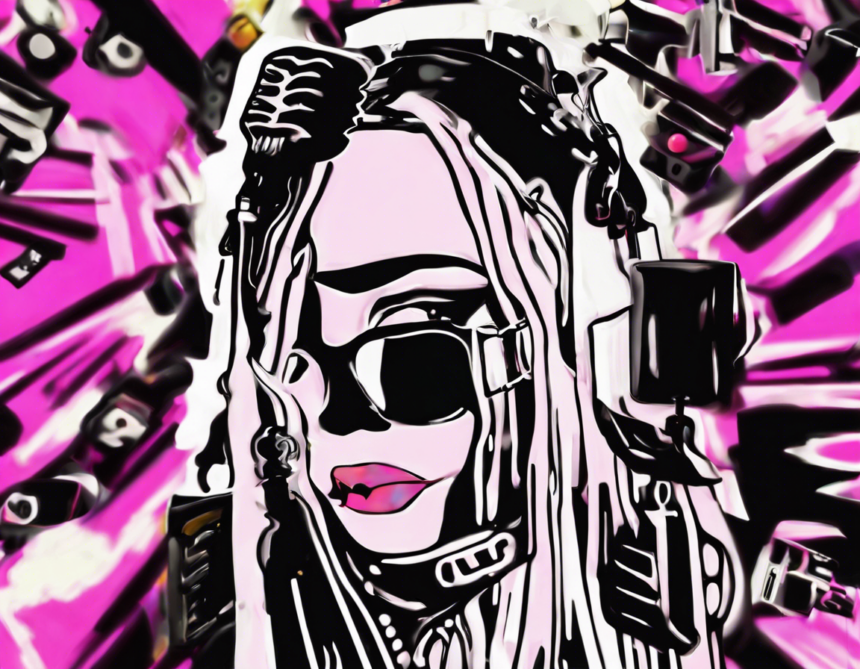In the digital age, privacy and personal information have become increasingly vulnerable to breaches and leaks. One recent high-profile case that has captivated the internet is the Lena The Plug video leak. Lena Nersesian, better known as Lena The Plug, is a popular YouTuber and adult content creator who found herself at the center of a scandal when private videos of her were leaked online. This incident sparked a debate about online privacy, consent, and the consequences of sharing sensitive content in the age of social media.
The Rise of Lena The Plug
Lena Nersesian rose to fame through her YouTube channel, where she gained a massive following by documenting her life and discussing topics related to relationships, sexuality, and lifestyle. Her candid and unfiltered approach to content creation attracted a dedicated fan base, leading to her transition into creating adult content on subscription-based platforms. Lena’s openness about her personal life and exploration of unconventional relationship dynamics further fueled her popularity and controversy, making her a polarizing figure in the digital space.
The Video Leak Scandal
In early [year], private videos of Lena The Plug surfaced online, causing a stir across social media platforms. The leaked videos, which were intimate in nature and meant for private viewing, were shared without Lena’s consent, prompting widespread discussion about privacy violations and online harassment. Many condemned the breach of Lena’s privacy, emphasizing the importance of respecting boundaries and consent, even for public figures or content creators who share aspects of their lives online.
Legal and Ethical Implications
The Lena The Plug video leak raised important questions about the legal and ethical implications of sharing intimate content without permission. In many jurisdictions, non-consensual distribution of private images or videos, also known as revenge porn, is considered a criminal offense. Such acts not only violate an individual’s privacy rights but can also have lasting repercussions on their mental health, reputation, and personal relationships.
Protecting Your Privacy Online
In light of incidents like the Lena The Plug video leak, it’s crucial for internet users to prioritize online privacy and security. Here are some tips to protect your privacy and safeguard your personal information online:
- Use strong, unique passwords for each account
- Enable two-factor authentication
- Be cautious about sharing personal details online
- Regularly update your privacy settings on social media platforms
- Consider using a VPN for added security
Facing the Aftermath
For individuals like Lena Nersesian who experience a privacy breach or online leak, navigating the aftermath can be challenging. Seeking support from mental health professionals, legal advisors, and online communities can help in dealing with the emotional, legal, and practical consequences of such incidents. It’s essential to prioritize self-care, seek assistance when needed, and take steps to reclaim control over your digital footprint.
Frequently Asked Questions (FAQs)
1. What should I do if my private videos or images are leaked online?
If you are a victim of online harassment or privacy violation, document the incident, report it to the platform(s) where it occurred, seek legal advice, and reach out to support services for assistance.
2. Can sharing intimate content consensually prevent leaks?
While consent is vital in any form of content sharing, there is no foolproof way to guarantee that private videos or images won’t be leaked without permission. Think carefully before sharing sensitive content online.
3. How can I support someone who has experienced a privacy breach?
Offering empathy, listening without judgment, helping them access resources, and empowering them to make decisions about their next steps can be valuable forms of support for someone going through a privacy breach.
4. Are there laws to protect against revenge porn and privacy breaches?
Many countries have enacted laws to address revenge porn and non-consensual distribution of private images. Familiarize yourself with the legal framework in your jurisdiction and seek assistance if you are a victim of such acts.
5. What steps can I take to enhance my online security and privacy?
Using strong passwords, enabling two-factor authentication, being cautious about sharing personal information, regularly updating privacy settings, and considering tools like VPNs can bolster your online security and privacy.
In conclusion, the Lena The Plug video leak serves as a reminder of the complex intersections between privacy, consent, and digital culture. By respecting boundaries, advocating for privacy rights, and prioritizing online security, individuals can navigate the digital landscape with greater awareness and responsibility.


Leave a Reply